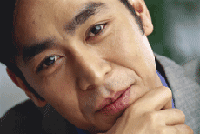|
Your Feelings and Pain
Don't lose hope.
Finding support
Talking with family members
Having pain and cancer affects every part of your life.
It can affect not only your body, but your thoughts and feelings as well. Whether you
have a lot of pain or a little, if it's constant, you may feel like you aren't able to focus
on anything else. It may keep you from doing things and seeing people that you
normally do. This can be upsetting and may feel like a cycle that never seems to end.
Sometimes things that people used to take for granted aren't as easy anymore. These
may include cooking, getting dressed, or just moving around. Some people can't work
because of the pain or have to cut back on their hours. They may worry about money.
Limits on work and everyday life may also make people less social, wanting to see
others less often.
Research shows that people in pain may feel sad or anxious and may get depressed
more often. At other times they may feel angry and frustrated. And they can feel
lonely, even if they have others around them.
A common result of having cancer and being in pain is fear. For many, pain and fear
together feel like suffering. People get upset worrying about the future. They focus
their thoughts on things that may or may not happen. You may feel fear about many
things, such as fear of:
- The cancer getting worse
- The pain being too much to handle
- Your job or daily tasks becoming too hard to do
- Not being able to attend special trips or events
- Loss of control
This rollercoaster of feelings often makes people look for the meaning that cancer
and pain have in their life. Some question why this could happen to them. They
wonder what they did to deserve it. Others may turn to religion or explore their
spirituality more, asking for guidance and strength.
| "At first I wasn't able to do the things I used to do. I couldn't mow my lawn or work in my garden. It was very frustrating." - Juan |  |
Don't lose hope.
If you have feelings like these, know that you're not alone. Many people with cancer
pain have had these kinds of feelings. Having negative thoughts is normal. And
some people have positive thoughts, too, finding benefits in facing cancer. But if
your negative thoughts overwhelm you, don't ignore your feelings. Help is there for
you if you're distressed or unsure about your future.
Finding support
There are many people who can help you. You can talk with oncology social
workers, health psychologists, or other mental health experts at your hospital or
clinic. Your health care team can help you find a counselor who is trained to help
people with long-term illnesses. These people can help you talk about what you are
going through and find answers to your concerns. They may suggest medicine that
will help you feel better if you need it.
Many people say that they regain a sense of control and well-being after talking with
people in their spiritual or religious community. A leader from one of these groups
may be able to offer support, too. Many are trained to help people cope with illness.
Also, many hospitals have a staff chaplain who can counsel people of all faiths.
You can also talk with friends or others in your community. Some join a support
group. Cancer support groups are made up of people who share their feelings about
coping with cancer. They can meet in person, by phone, or over the Internet. They
may help you gain new insights and ideas on how to cope. To find a support group
for you, talk with your doctor, nurse, or oncology social worker.
| "I can't help feeling frustrated with all that's going on in my life. Between my cancer treatments and the pain, I get upset and angry. Sometimes I really need someone to talk to - someone who understands what I'm going through." - Carlos |  |
| How your pain affects your loved ones |
Chronic or severe pain affects everyone who loves and takes care of you. It can be
hard for family members and friends to watch someone close to them be in pain.
Like you, your loved ones may feel angry, anxious, and lonely. They may feel
helpless because they can't make you feel better. They may even feel guilty that you
have pain while they don't. Or they may feel loss, because your pain keeps you from
doing things you like to do.
It's natural for family members and friends to have these emotions. It may help if
everyone understands that these emotions exist and that no one needs to face
them alone.
Let your family members know it's okay for them to get help. Like you, they can talk
to a counselor or join a support group. Encourage them to ask the oncology social
worker about the options that are available for them.
Also, they can read the NCI booklets for caregivers listed in
For More Information. |
Talking with family members
You may want to let family members and friends know how you're feeling. For some,
this can be hard or awkward. Some people say that they want to avoid upsetting those
closest to them. Others say that they don't want to seem negative. But open and honest
communication can help everyone. Letting others know about your pain may help
them understand what you are going through. They can then look for ways to help
you. Your loved ones may also feel better knowing that they're helping to make you
feel more comfortable.
Family problems before your cancer
Any problems your family had before you got cancer are likely to be more intense
now. Or maybe your family just doesn't communicate very well. If this is the case,
you can ask a social worker to set up a family meeting for you. During these
meetings, the doctor can explain treatment goals and issues. And you and your
family members can state your wishes for care. These meetings can also give
everyone a chance to express their feelings in the open. Remember, there are many
people you can turn to at this time.
Back to Top
< Previous Section | Next Section > |